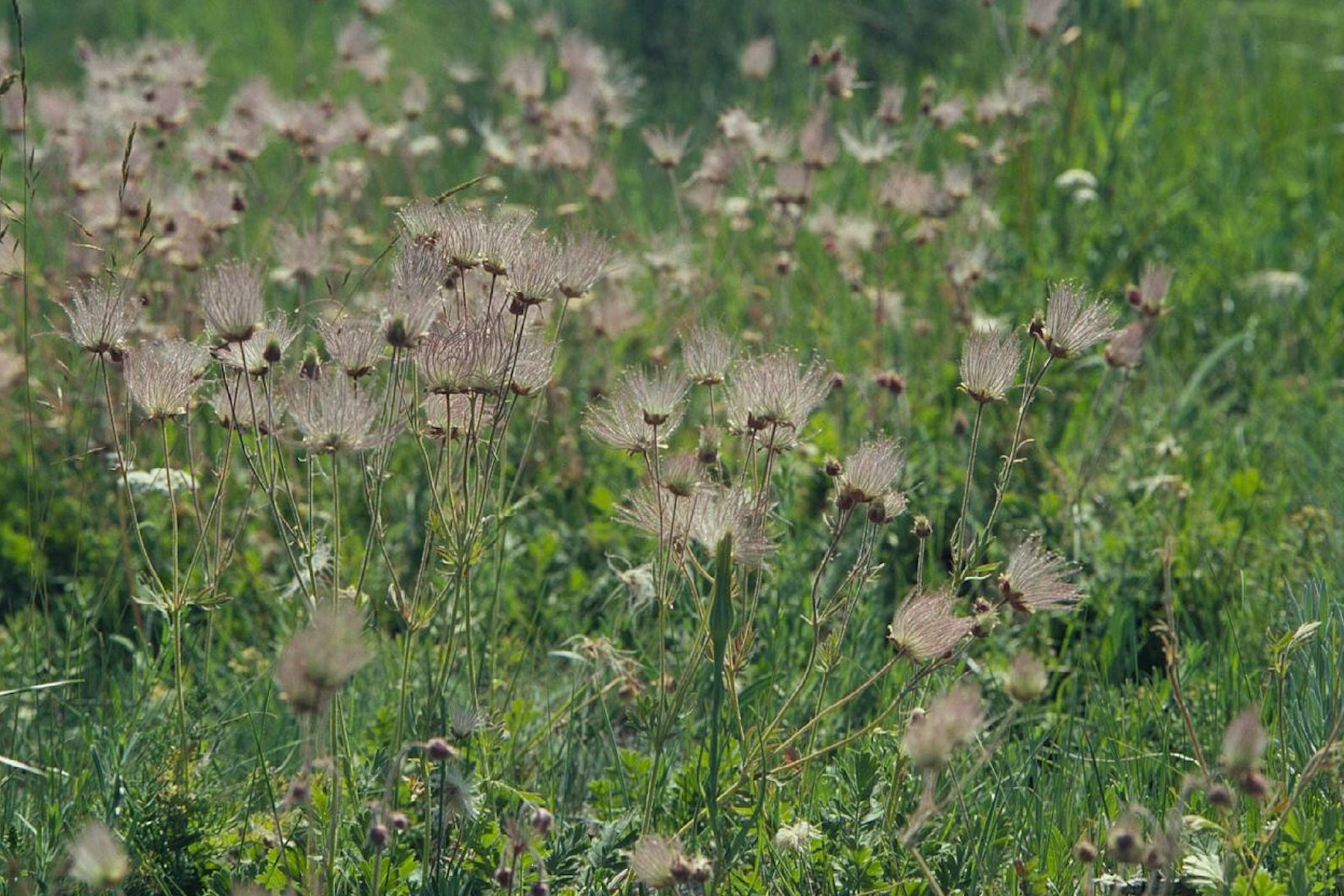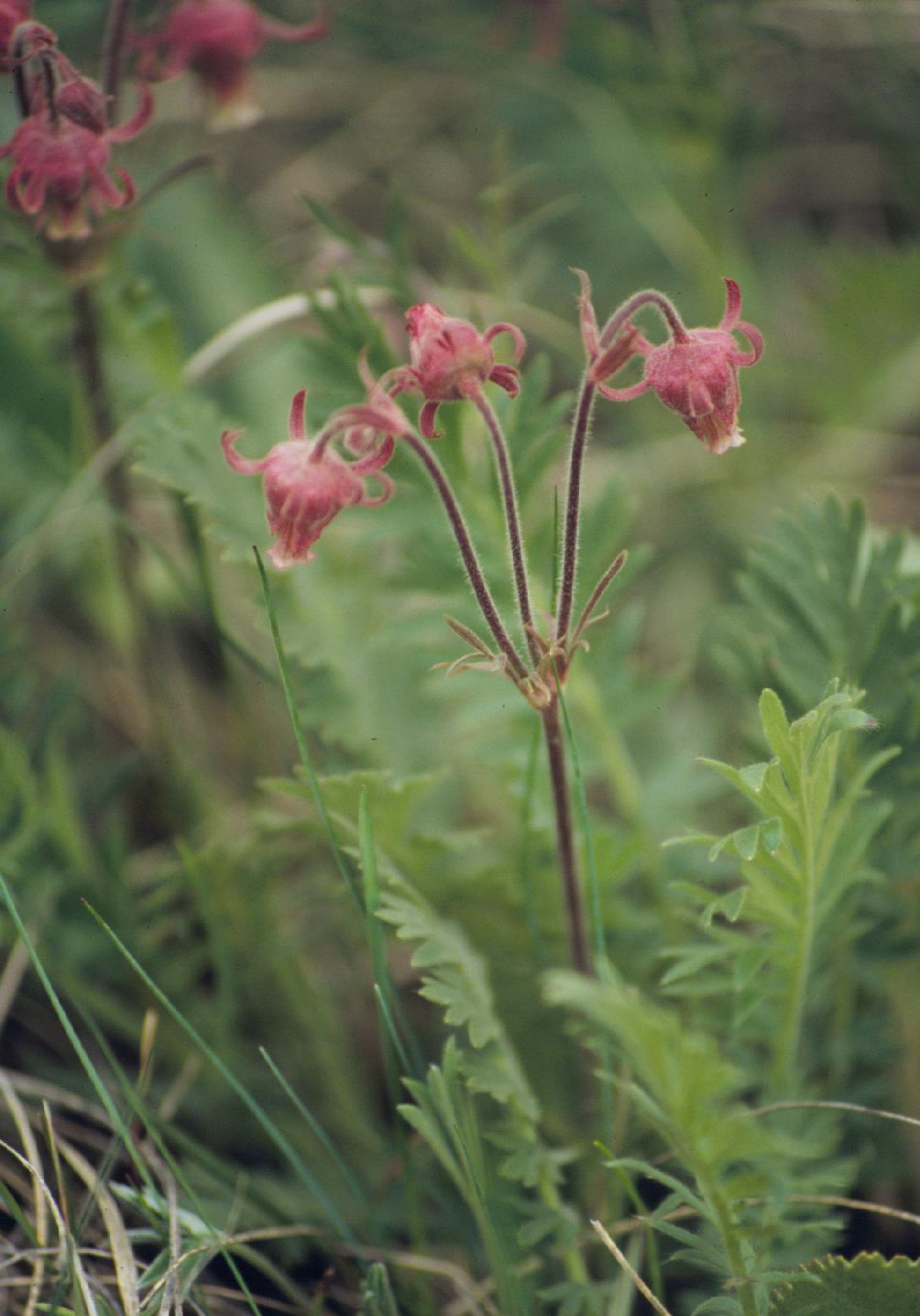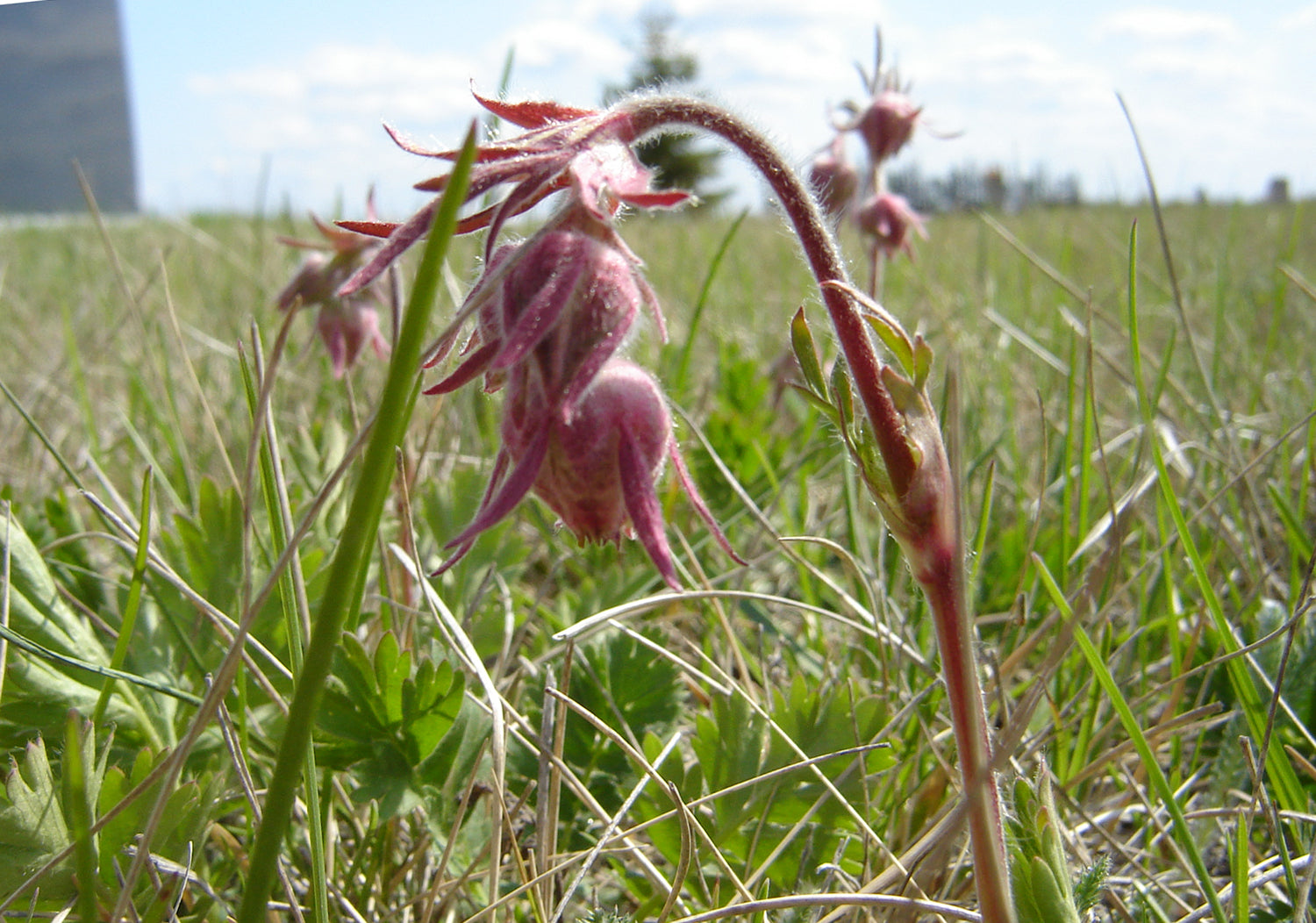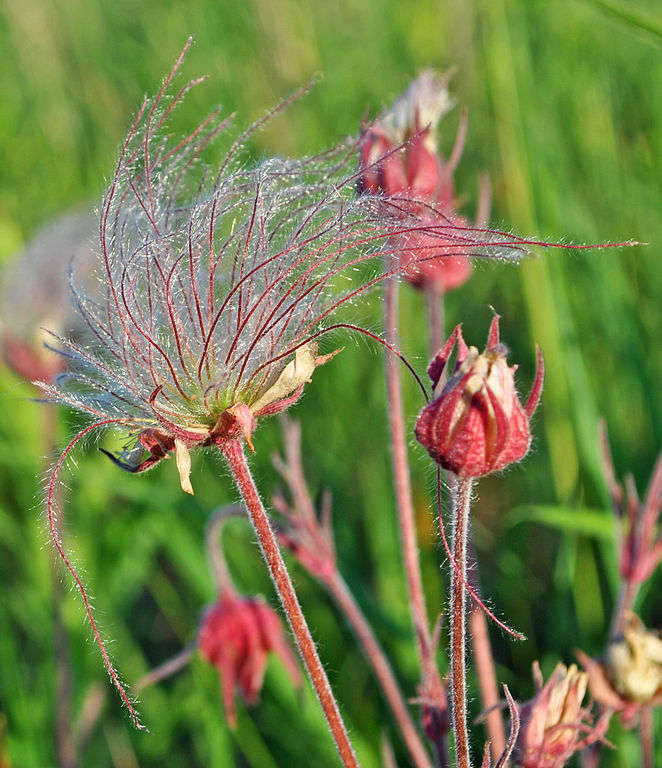Geum triflorum
Approx. 0.5 litre pot
About this cultivar:
Geum triflorum is a North American perennial wildflower of the rose family. The roots and crushed seed pods were used by Eastern Cascades First Peoples to make a tea tonic that tastes like sassafrass. It was also used by First Peoples also as an eye-wash, as a gargle for sore throat, or as a body-wash for aches & pains…. you get the picture…. it had many other uses. The first white immigrants of North America soon learned of its value and brewed "Smoke Root Tea" to used for stomach aches.
Not only does it have a lot of uses but also a lot of common names! Prairie Smoke, Old Man's Whiskers, Purple Avens, Red Avens, Long-plumed Avens, Three-flowered Avens, Donald Trump Avens. Just kidding with that last one, but look at the photos….
Specific epithet means three-flowered, as each stem often provides three flowers. Though the flowers nod the stems turn upright by the time the fruit appears, so their feathery heads are a bit like a nutty professor in a cartoon (or real life, see photos). The seedheads can be picked with stems & hung upside-down in a warm dry location until they are ready for dry-flower arrangements.
It gained the common name "Old Man's Whiskers" because of the seeds' upright feathery tufts. I have heard it should be called ‘Old ladies purple Rinse’. It's also called "Prairie Smoke" for the same fluffy appearance once the clusters of maroon or plum-coloured flowers have gone to seed.
The nodding flowers are partially closed up & bud-like. Bees have to force their way into the bloom with quite an aggressive actionso a clump always looks busy! Once pollinated, the bowed heads then slowly raise themselves upward while turning into tufted fruits. The process is quite slow, so that each nodding flower lasts for weeks.
Come autumn this wild geum builds itself up to a ferny evergreen clump of bright green. Some years, late in autumn, the leaves turn red, burgundy, & orange.
A fun plant! I am going to call it Einstein Plant from now on..... invite him into your garden!
- Position: Full sun, partial shade
- Soil: Almost any soil, grows well in Ballyrobert
- Flowers: May, June, July
- Other features: Grows well in Ballyrobert
- Hardiness: H7 - Hardy in the severest European continental climates (< -20°C), Fully hardy - grows well in Ballyrobert!
- Habit: Clump forming, bushy
- Foliage: Evergreen
- Height: 15 - 45 cm (0.5 - 1.5 ft)
-
Spread: 45 - 75 cm (1.5 - 2.5 ft)
- Time to full growth: 2 to 5 years
- Plant type: Herbaceous Perennial
- Colour: Green, red
- Goes well with: Geraniums, grasses. Potentilla and Fragaria. Also try Dryopteris, Epimedium, Polygonatum, Trollius, Euphorbia, and Primulas.
About this genus:
Geum, commonly called avens, is a genus of about 50 species of rhizomatous perennial herbaceous plants in the rose family( Rosaceae). They are native to Europe, Asia, North and South America, Africa, and New Zealand - to earth basically. They are closely related to Potentilla and Fragaria. Most species produce flowers on wiry stalks, in shades of red, yellow and orange. Geum species usually have fuzzy-hairy evergreen foliage unless winter temperatures drop below −15 or -20 °C; not a regular occurrence in this part of the world.
Geum will grow anywhere that isn't full shade or in a puddle. Why are they not more popular then? I'll tell you my theory; when they are grown in pots they are very straggly and don't look great! The reality is that when planted in the ground they will be much more compact, bushy, and upright.
Their evergreen-ness makes them great for filling holes and providing year round interest; cut them back if you think they look scruffy in winter (I think they are charming in winter!). They are great with Geraniums, and I think, grasses. Often paired with their close relatives Potentilla and Fragaria. Also try Dryopteris, Epimedium, Polygonatum, Trollius, Euphorbia, and Primulas.




















